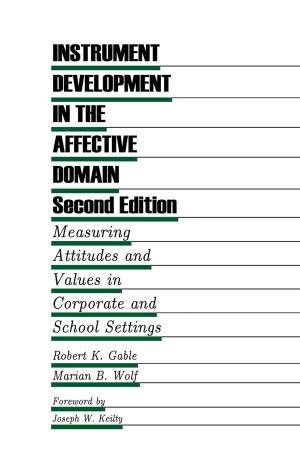A History of Women Philosophers
Medieval, Renaissance and Enlightenment Women Philosophers A.D. 500–1600
Nonfiction, Religion & Spirituality, Philosophy, Medieval, History| Author: | ISBN: | 9789400925519 | |
| Publisher: | Springer Netherlands | Publication: | December 6, 2012 |
| Imprint: | Springer | Language: | English |
| Author: | |
| ISBN: | 9789400925519 |
| Publisher: | Springer Netherlands |
| Publication: | December 6, 2012 |
| Imprint: | Springer |
| Language: | English |
aspirations, the rise of western monasticism was the most note worthy event of the early centuries. The importance of monasteries cannot be overstressed as sources of spirituality, learning and auto nomy in the intensely masculinized, militarized feudal period. Drawing their members from the highest levels of society, women's monasteries provided an outlet for the energy and ambition of strong-willed women, as well as positions of considerable authority. Even from periods relatively inhospitable to learning of all kinds, the memory has been preserved of a good number of women of education. Their often considerable achievements and influence, however, generally lie outside even an expanded definition of philo sophy. Among the most notable foremothers of this early period were several whose efforts signal the possibility of later philosophical work. Radegund, in the sixth century, established one of the first Frankish convents, thereby laying the foundations for women's spiritual and intellectual development. From these beginnings, women's monasteries increased rapidly in both number and in fluence both on the continent and in Anglo-Saxon England. Hilda (d. 680) is well known as the powerful abbsess of the double monastery of Whitby. She was eager for knowledge, and five Eng lish bishops were educated under her tutelage. She is also accounted the patron of Caedmon, the first Anglo-Saxon poet of religious verse. The Anglo-Saxon nun Lioba was versed in the liberal arts as well as Scripture and canon law.
aspirations, the rise of western monasticism was the most note worthy event of the early centuries. The importance of monasteries cannot be overstressed as sources of spirituality, learning and auto nomy in the intensely masculinized, militarized feudal period. Drawing their members from the highest levels of society, women's monasteries provided an outlet for the energy and ambition of strong-willed women, as well as positions of considerable authority. Even from periods relatively inhospitable to learning of all kinds, the memory has been preserved of a good number of women of education. Their often considerable achievements and influence, however, generally lie outside even an expanded definition of philo sophy. Among the most notable foremothers of this early period were several whose efforts signal the possibility of later philosophical work. Radegund, in the sixth century, established one of the first Frankish convents, thereby laying the foundations for women's spiritual and intellectual development. From these beginnings, women's monasteries increased rapidly in both number and in fluence both on the continent and in Anglo-Saxon England. Hilda (d. 680) is well known as the powerful abbsess of the double monastery of Whitby. She was eager for knowledge, and five Eng lish bishops were educated under her tutelage. She is also accounted the patron of Caedmon, the first Anglo-Saxon poet of religious verse. The Anglo-Saxon nun Lioba was versed in the liberal arts as well as Scripture and canon law.















